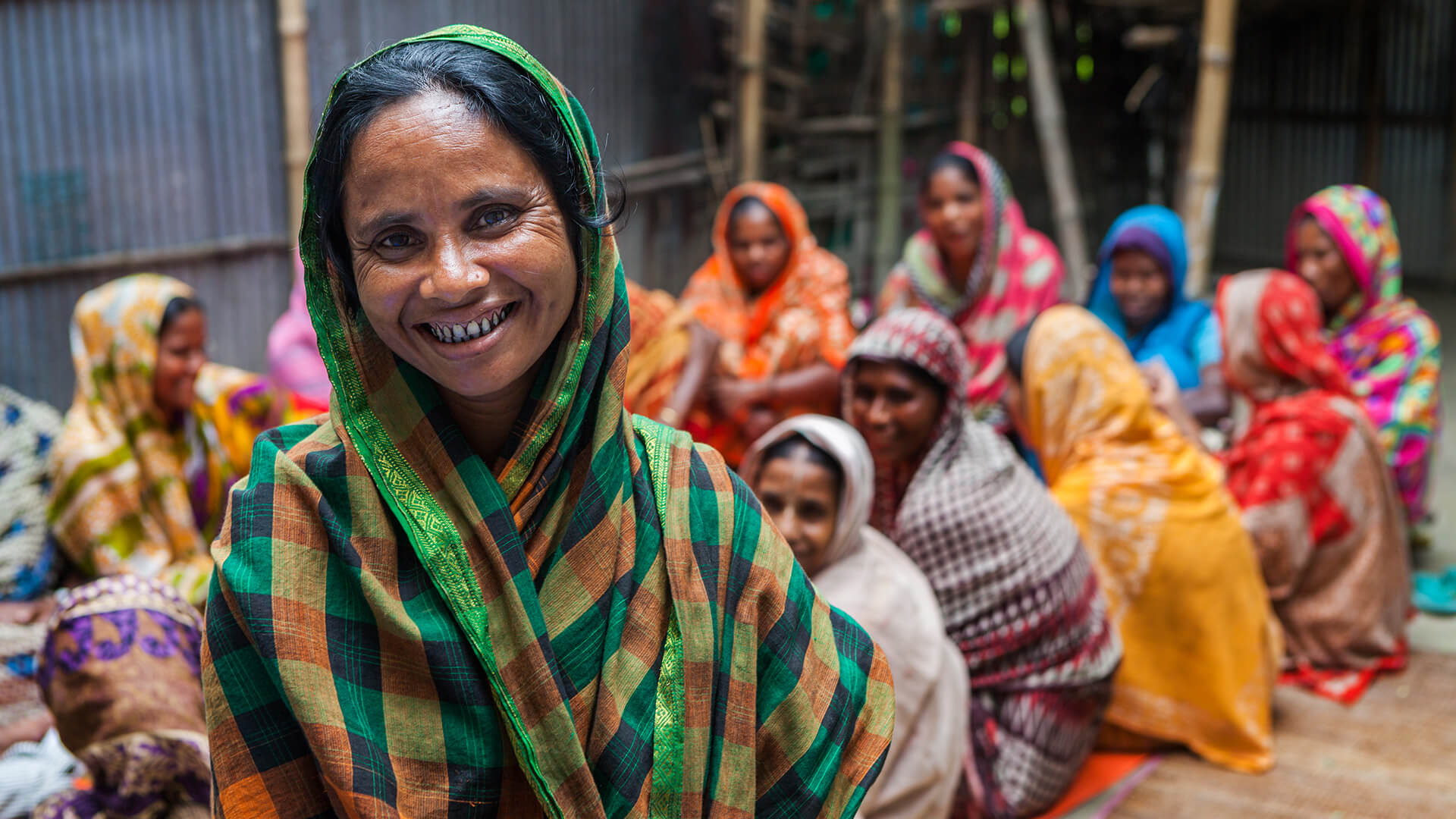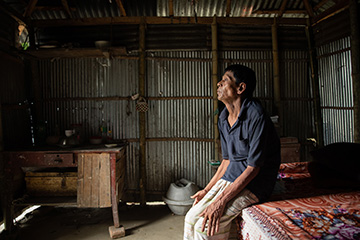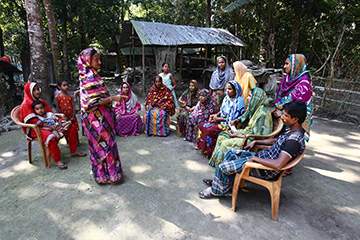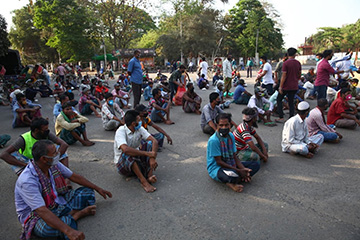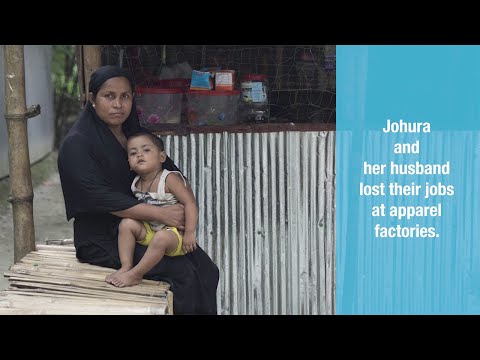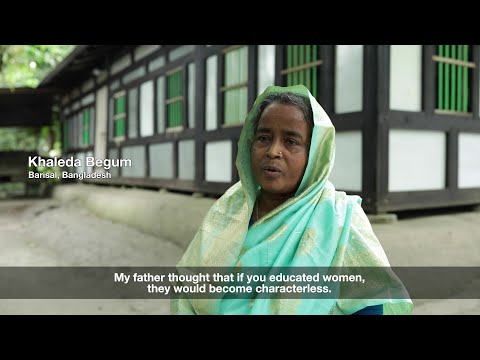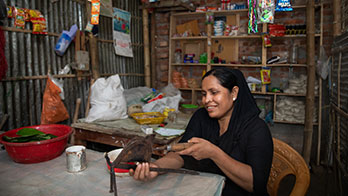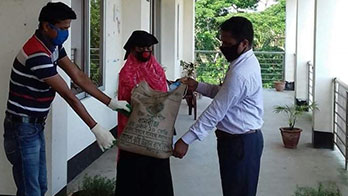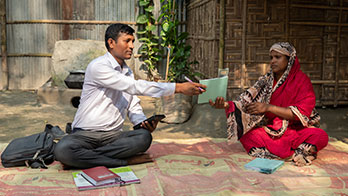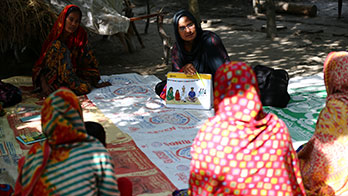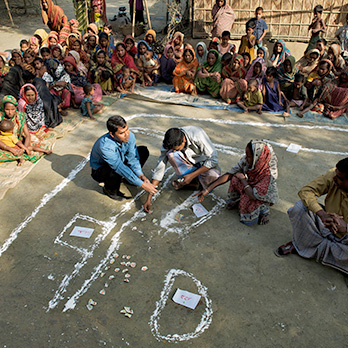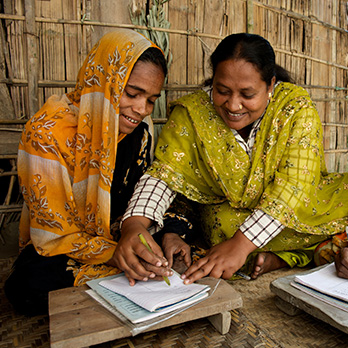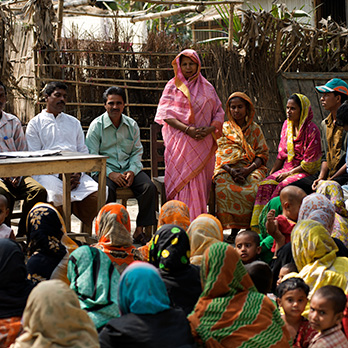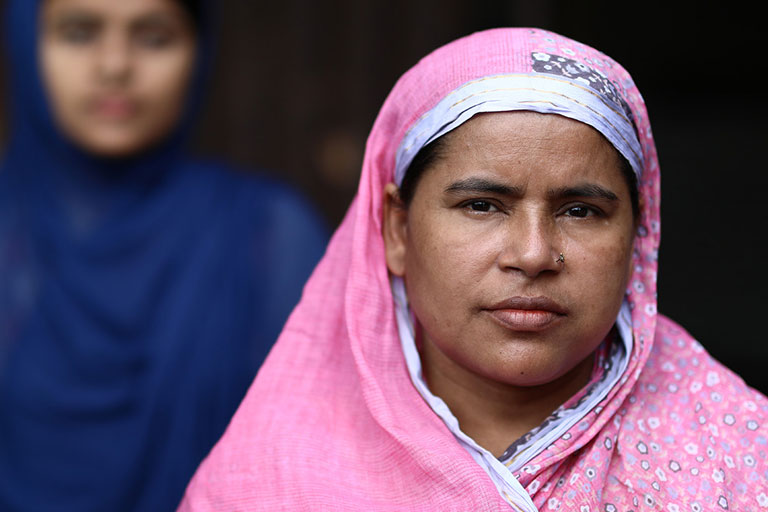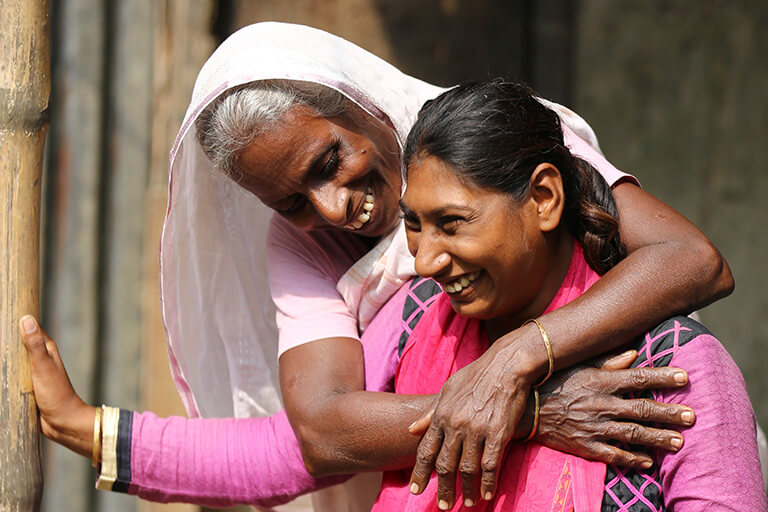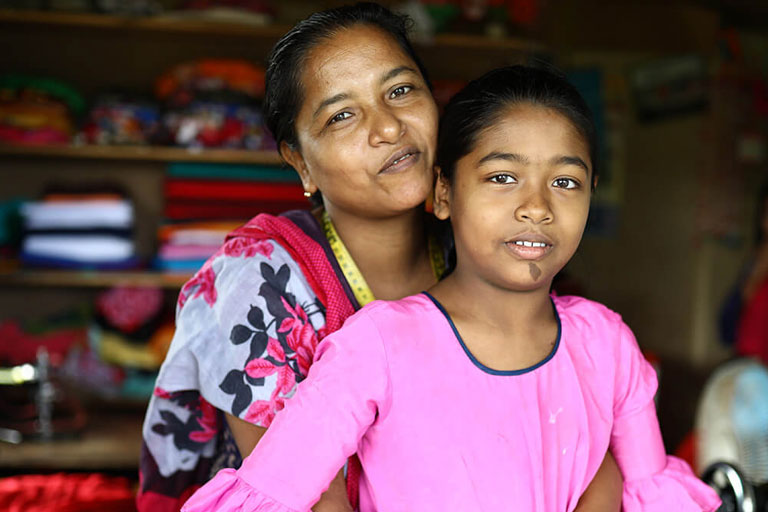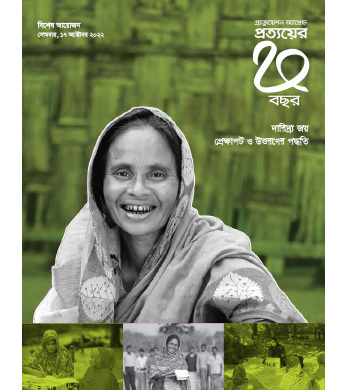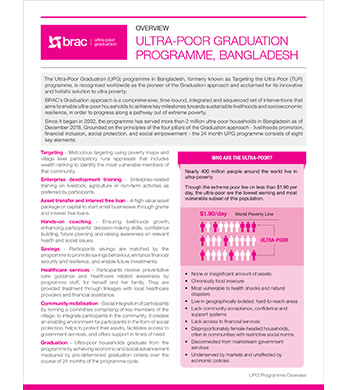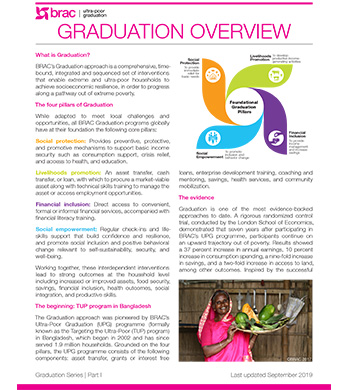At least 10.5% of Bangladesh's population lives below the global poverty line of USD 1.90 per day. This number is estimated to have risen by 14% as a result of COVID-19.
People living in extreme deprivation face a multitude of interconnected challenges. They have little or no productive assets and are often excluded from social services. Conventional development programmes are not able to meet their complex needs.
BRAC is the pioneer of Graduation, a proven approach to support people to lift themselves out of extreme poverty. Using a holistic, time-bound and sequenced set of interventions, the approach enables the households that earn the least and are in the most vulnerable situations to progress along a pathway to sustainable livelihoods and socioeconomic resilience.
NUMBERS
95% of people graduated out of extreme poverty
93% of people experienced sustained benefits, even seven years after Graduation
14 million people in 3.1 million households reached through partnerships with 100+ partners (governments, non-government organisations and multilateral institutions) in approximately 50 countries
STORIES
VIDEOS
WHAT WE DO
Provide technical skills training, grants or interest-free loans to procure a viable market asset or start a business
Ensure access to health, education and employment opportunities, through community mobilisation and linkages with government services, social safety net programmes and emergency relief during crises
Provide financial literacy training and access to financial services
Build confidence, resilience and social inclusion through regular check-ins, linkages with village social solidarity committees and life skills support
HOW WE DO IT
WHY IT WORKS
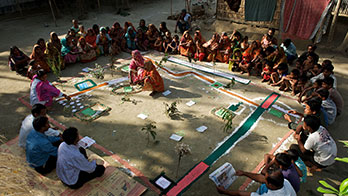
Targeted approach
Rigorous selection process to target participants from different segments and contexts of extreme poverty
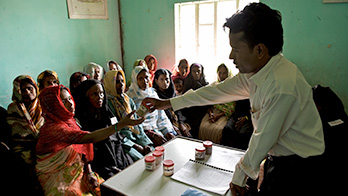
Focus on skills and capacity
Enterprise-specific technical training, confidence building and awareness creation on social and health issues through group and home visits

Community engagement
Engaging the community for participants selection, social integration, accessibility to mainstream services and positive peer influence
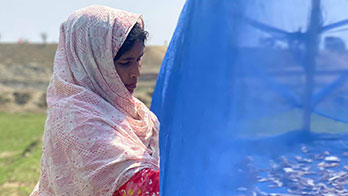
Adaptability
Customising programme interventions for different contexts and needs, including wetlands, urban and coastal areas; persons with disabilities; climate-induced migrants and so on
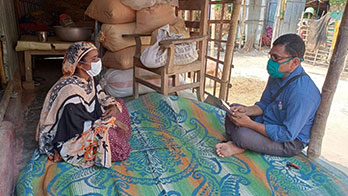
Evidence-driven
Designing programme interventions based on research evidence, practical field knowledge, and impressive results from long-term RCTs
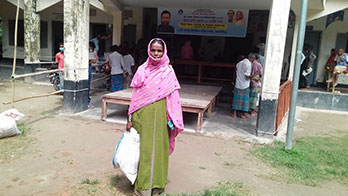
Engagement with the governments
Close collaboration and coordination with the government to ensure services and social safety net programmes are in alignment with national plans
PEOPLE
Noorjahan is a blooming entrepreneur, selling beauty products and fabrics. She was driven from her village because of river erosion, but has now made a new home, built her own brick house and is educating her children.
Kajli is a small business owner living with her daughter Chobi. Kajli’s earning source - pigeons - give Chobi an endless stream of unique friends and nutritious food.
Manju is a popular tailor and the hero of her daughter, Ishita. Manju had a hard life - she was a child bride, injured in a road accident and lived a life in poverty, but she promises more for Ishita.
LEARN MORE
CONTACT
For any queries related to BRAC’s Ultra-Poor Graduation work in Bangladesh, please contact: upgcommunication@brac.net
PARTNERS
GLOBAL FOOTPRINT
BRAC International: We implemented Graduation outside Bangladesh for the first time in 2009. We are now directly implementing the approach in Liberia and Uganda.
Ultra Poor Graduation Initiative (UPGI): We founded this in 2016 to provide advisory services and technical support to governments and NGO partners for Graduation programmes. Today, BRAC UPGI is scaling the Graduation approach through governments, integrating it into existing programmes, and working with partners around the world to drive policy change to better reach and meet the multidimensional needs of people living in extreme poverty.

